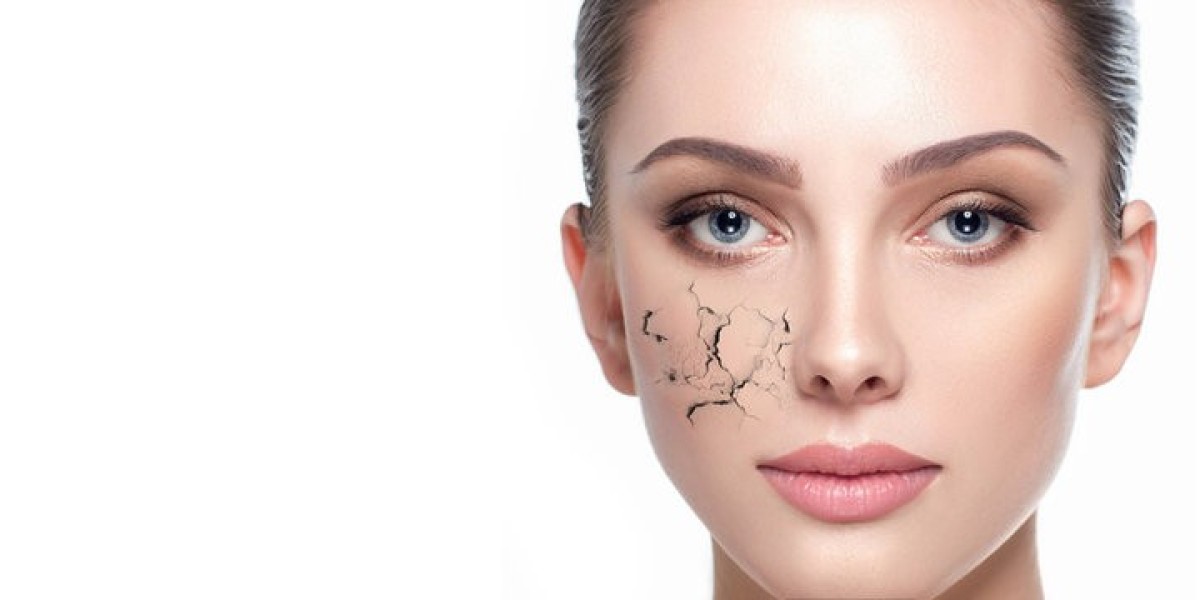When it comes to skin issues like dryness, most people instinctively reach for moisturizers and serums. But what if the secret to smoother, more hydrated skin lies not in your skincare shelf, but on your plate? The truth is, your diet plays a crucial role in your skin’s overall health, and making the right nutritional choices can significantly improve how your skin looks and feels.
If you’re struggling with flakiness, tightness, or dull skin despite using the best products, it might be time to evaluate what you’re eating. And for those seeking targeted solutions, combining dietary adjustments with professional car,e such as Dry Skin Treatment in Islamabad, can deliver lasting results.
Let’s take a closer look at how your food habits affect dry skin—and what you can do to fix it.
The Skin–Diet Connection: Is It Real?
Yes, absolutely! Your skin is your body’s largest organ, and like every other organ, it needs proper nutrition to function optimally. Dry skin can be the result of many external factors—weather, dehydration, harsh cleansers—but internal nutrient deficiencies often go overlooked.
Key nutrients that support healthy, hydrated skin include:
Essential fatty acids (like omega-3s)
Vitamin E
Vitamin A
Vitamin C
Zinc
Water
When your body lacks these, your skin struggles to produce enough oil (sebum), maintain its barrier function, and retain moisture. This is when dryness, itching, and flaking begin to appear—even with a decent skincare routine in place.
Top Skin-Loving Nutrients You Should Be Eating
Here’s a breakdown of the nutrients that help combat dryness and the foods that are rich in them:
1. Omega-3 Fatty Acids
Omega-3s help regulate the skin’s oil production, improve hydration, and reduce inflammation. A deficiency can lead to dry, itchy skin.
Best sources:
Fatty fish like salmon, mackerel, and sardines
Chia seeds
Flaxseeds
Walnuts
2. Vitamin E
This antioxidant protects skin cells from oxidative stress and supports the skin barrier, which is essential in preventing moisture loss.
Best sources:
Almonds
Sunflower seeds
Avocados
Spinach
3. Vitamin A
Retinoids (a form of vitamin A) are widely used in skincare, but dietary vitamin A is just as important. It helps with cell repair and skin regeneration.
Best sources:
Carrots
Sweet potatoes
Kale
Eggs
4. Vitamin C
Vitamin C boosts collagen production and helps your skin hold onto moisture more effectively.
Best sources:
Citrus fruits
Bell peppers
Strawberries
Broccoli
5. Zinc
Zinc supports skin healing and helps maintain the integrity of the skin barrier.
Best sources:
Pumpkin seeds
Chickpeas
Red meat (in moderation)
Dairy products
6. Water
Let’s not forget the obvious. Skin hydration starts from within. Drinking at least 8 glasses of water a day is a must for anyone dealing with dry or flaky skin.
Foods That Can Worsen Dry Skin
Just as some foods help your skin, others can work against it—particularly those that dehydrate your body or cause inflammation.
Avoid or Limit:
Caffeinated drinks – Excess caffeine can dehydrate you
Alcohol – One of the biggest culprits in drying out the skin
High-sugar foods – Sugar leads to inflammation and weakens collagen
Processed and fried foods – Loaded with unhealthy fats that disturb oil production
Even if you’re eating healthy occasionally, frequent indulgence in these items can undo all the good work of your skincare and hydration efforts.
Diet Isn’t Everything—But It’s a Great Starting Point
Of course, diet alone may not be enough, especially if you're dealing with:
Chronic dry skin
Eczema
Psoriasis
Severely damaged skin barrier
In these cases, professional dermatological care is essential. In Islamabad, where the dry winter air can wreak havoc on skin health, it's highly recommended to combine a clean, skin-friendly diet with advanced in-clinic treatments that restore hydration and repair the skin’s natural defenses.
Complementing Diet with Professional Dry Skin Treatments
When dietary changes don't give you the full relief you're looking for, combining them with targeted treatments can help you achieve noticeable improvements in skin texture and hydration.
Popular treatments for dry skin include:
Hydrafacial therapy for deep hydration
Microneedling with serums to lock in moisture
Mesotherapy for direct nutrient infusion
Clinical-grade moisturization routines
These treatments are designed to treat dry skin from the outside in—while your improved diet handles things from the inside out.
Who Should Consider Professional Dry Skin Treatment in Islamabad?
If you’ve been struggling with:
Persistent flaking and tightness
Itchy patches
Dull and rough texture
Skin that doesn’t respond to over-the-counter moisturizers
…it’s a strong sign you need to consult a dermatologist. And that’s where Islamabad offers some of the best options available.
Conclusion:
While there’s no denying the power of a solid skincare routine, your daily meals have just as much—if not more—impact on your skin’s hydration and glow. Fueling your body with nutrient-rich foods like fatty fish, nuts, seeds, and leafy greens can make a visible difference in how soft, supple, and healthy your skin feels.
But for those who are looking for long-lasting, comprehensive care, pairing diet changes with professional help is the smartest route.
If you’re ready to tackle dry skin head-on, SKN Cosmetic Clinic in Islamabad offers advanced, personalized solutions that treat the root causes of dryness.






